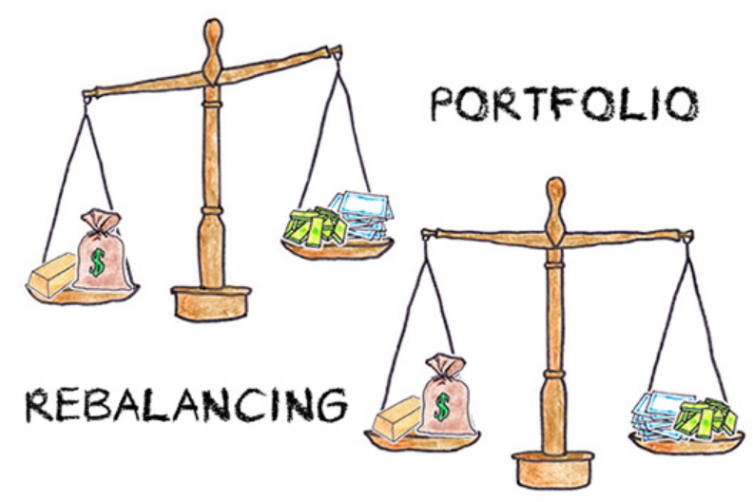Investing Insights
FinEdge is India's leading tech enabled investment management company and manages over 1400 crores of goal-based investments for its 20,000 clients spread across 1700 cities in the country.
Our team combines deep financial planning experience with behavioral insights to help investors make smart, goal-aligned decisions.
Benefits of Investing in SIPs for Goals: How SIPs Align with Your Financial Milestones
For Indian investors focused on goal-based investing, SIPs offer one of the most effective routes to financial success. Whether you’re planning for your child’s education, your dream home, or a comfortable retirement, SIPs help you stay consistent and resilient through market ups and downs. This blog explores how SIPs support specific financial goals through disciplined investing, and why they’re a strong fit for long-term wealth creation.
How Long-Term Investing Can Reduce the Risk of Low Returns
Most investors want better returns with minimal risk. But what’s the secret? Time. The longer you stay invested, the more likely you are to avoid negative returns and achieve your goals. This blog explores why long-term investing, especially through SIPs, is your best defence against market volatility.
How Much Money Do You Really Need for Retirement in India?
Retirement goals aren’t guesses. Learn how to calculate your exact corpus and plan for every future need, from healthcare to legacy.
How SIP and Step-Up SIP Calculators Help You Plan Better
Starting a SIP is easy. But knowing how much to invest, for how long, and whether you should increase it annually? That’s where most investors struggle. This is where a SIP calculator, and even better, a step-up SIP calculator, can guide you. These tools aren’t just digital widgets; they bring structure and clarity to your financial journey, ensuring your SIPs are aligned to real-world goals.
Is Early Retirement Really Feasible?
FIRE isn’t just a dream, but it takes serious math. Discover what it really takes to retire at 45 in India.
How to Use SIPs to Build Long-Term Wealth with Discipline and Consistency
Creating long-term wealth isn’t about chasing market highs , it’s about staying consistent, investing regularly, and letting time and discipline do the work. This is where SIPs (Systematic Investment Plans) come in. If you're wondering how to use SIPs for long-term wealth, this article walks you through the power of consistency, compounding, and how even small investments can lead to significant outcomes.
5 Tips to use Mutual Funds for your Financial Goals
All of us have Financial Goals. Some may be aspirational, such as buying a new card or upgrading our home. Others may be uncompromisable – such as a child’s education, or building up a nest egg before we finally hang up our work boots. Regardless of the kind of goals at hand, they all require advance planning and structured, disciplined saving in order to reach fruition.
5 Reasons Why You Should Occasionally Review Your Portfolio
Enamoured by AMFI’s impactful “Mutual Funds Sahi Hai” campaign, new investors flocked to Mutual Funds in droves between 2015 and 2018. As first timers, many of these investors are unaware about the importance of regularly having their portfolios reviewed by a professional Financial Advisor.
Chasing Returns vs. Wealth Creation
Creating Wealth from your investments is all about return maximization, right? Wrong! It may surprise you to know that your pernicious little habit of always trying to maximize portfolio returns may in fact be what is impeding your ability to generate long-term wealth. Here’s are four reasons why.
Should you invest into NFO’s (New Fund Offers)?
AMFI's ad campaign boosts mutual fund interest, but investors must cautiously assess NFOs amidst SEBI's re-categorization.
How to Make Your SIP Investments Work for You
Fuelled by AMFI’s impactful “Mutual Funds Sahi Hai” campaign, Mutual Fund SIP’s have witnessed massive traction over the past few years. In fact, monthly SIP flows of the industry has had a giant leap in the past few years to almost Rs. 14,000 crores. If you’re a Mutual Fund SIP investor, here are four ways to make them work for you.
Indian Fathers Prioritize Daughters' Education Over Early Marriage as Per FinEdge Study
At 30, the highest priority goal for fathers is to buy a home (26%), with only 6% of them actively planning for their children's futures at this stage. Only 1 in 5 respondents prioritize their retirement over their child's education; proclivity for retirement planning is slightly more pronounced in the south zone
Latest Posts
ELSS Mutual Funds: A Simple Way to Save Tax and Build Long-Term Wealth
Feb 12, 2026
GIFT Nifty vs Nifty 50: Understanding the Key Differences
Feb 11, 2026
Accelerated Trends of Women Investing in India
Feb 11, 2026
How to Save More From Everyday Expenses and Invest More Consistently
Feb 10, 2026
Beginner Investing Guide: How to Start Investing the Right Way
Feb 10, 2026
The Importance of your Child’s Education Goal
Feb 28, 2024
Why Retirement Planning is Important
Nov 08, 2023
Oct 31, 2023
Investing Behaviour and the investing roller coaster
Oct 12, 2023
.png)

.jpg)
.jpg)
.jpg)
.jpg)
.jpg)
.jpg)









.jpg)
